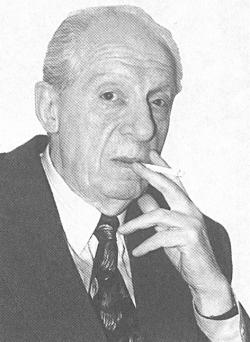









All focused on Norilsk
In line with the project „Simple Stories“, which started on the occasion of the 80th anniversary of „Norilsk Nickel“, people of Norilsk who left a remarkable trace in the biography of the town and combine, tell about themselves and those times. For „Autoradio“ and „Europe Plus“ radio stations these stories were read by deserved actors of Russia such as Nina Valenskaya, Larissa Potekhina, Sergey Igolnikov, Sergey Rebriy and Andrey Ksenyuk.
„Polar-Pravda“ presents its readers with extended versions of the „Simple Stories“ as continuation of the jubilee “Chronograph“.
 - I was working in Dudinka as head of the port. In 1948 everything related to
water transportation was within my area of responsibility. I recall that we
received a telegram from the Minister of the Interior Kruglow of the following
tenor: „A ship loaded with Polish concrete has been sent to you. There are about
4000 tons of the material on board; they are to be unloaded within a 96 hours
exclusively by freeman only“.
- I was working in Dudinka as head of the port. In 1948 everything related to
water transportation was within my area of responsibility. I recall that we
received a telegram from the Minister of the Interior Kruglow of the following
tenor: „A ship loaded with Polish concrete has been sent to you. There are about
4000 tons of the material on board; they are to be unloaded within a 96 hours
exclusively by freeman only“.
This telegram was rather perplexing, for it was a matter of fact that there were at the most 120-150 free people available within the harbor area of Dudinka – and all of them were „mad housewives“, as we used to call the wives of the commanding personal et that time, women, who never experienced any professional training but had a job as housekeeper, in trade offices or staff departments. However, they would have needed strong men, about 160 in number, - then they might have been able to manage unloading the concrete within four days and nights. What was to be done? Well, I call the director of the combine Sverev. He says:
- Convoke all representatives, and then discuss how to proceed further.
Hence, the heads of the operative Chekists Department, the deputy camp commander and the bosses of the service departments held a meeting. I explain the situation to them. They all came to the conclusion: there can be no talk at all of assigning free people to unload the ship. But how else should they deal with the given tasks?
The boss of the Chekists proposed:
- Let us select reliable prisoners to unload the ship.
And deputy camp commander captain Michno continued:
- Let us clothe the prisoners with good workwear and also fit the militarized guard details in the same way. And instead of guns we will equip the latter by pistols – just in a case…
At once they decided that we should say the plein truth to the prisoners – about the prohibition of the Minister, as well as with regard to the 96 hours deadline and the guards to be equipped with pistols…
… In Dudinka there was a great number of experts who managed to tailor remarkable workwear within three days only – as if it had been taken from an American magazine. The ship was unloaded within 72 hours. When the crane heaved the last load the boom broke. We supposed that our loading workers had done that by intention – they had loaded twice as much of concrete. Everything seemed to be fine, until the boom could not stand the overweight any longer.
When the leaving English ship gave a sound by its siren and slowly departed from the mooring area, a strange picture opened in front of us: white bread, packages, bags and cigarettes were all floating on the water… Colored and white people through our people bread, chocolate and even sausages, as if they were dogs. But none of them decided to take any of the goods.
„Polar Truth“, 29.10.2015
Vassiliy Ksintaris, former deputy director of the supply and transport department of the Norilsk Combine, who later became deputy chairman of the State supply of the USSR.